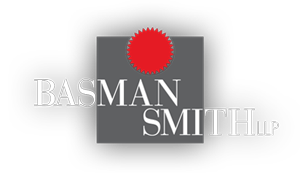The Canadian Government has recently introduced Canada’s Anti-Spam Legislation (CASL), a new law that will come into force on July 1, 2014. CASL is intended to protect Canadians from receiving unsolicited commercial electronic messages − more commonly known as spam and the main carrier of electronic threats (such as spyware, malware and phishing).
If your corporation employs the use of electronic messages to communicate with consumers, members or other stakeholders with the intent of engaging in or encouraging commercial activity, the following highlights of CASL should be noted:
Express consent must be obtained prior to sending or altering any commercial electronic messages (including e-mail, text, sound and image messages) that are sent to a recipient’s electronic address; Express consent must also be obtained and certain prescribed requirements must be met prior to installing a program on a person’s computer system (coming into force on January 15, 2015); The request for consent should clearly state the purpose(s) for which the consent is being sent and should identify the individual or corporation seeking the consent; Any commercial electronic message sent with the intent of obtaining such express consent, may itself be considered spam; The commercial electronic message must contain the name and valid contact information for the sender, as well as an unsubscribe mechanism; and Certain exceptions to obtaining express consent may apply to not-for-profit organizations, existing business, personal and family relationships, business-to-business e-mails, and third-party referrals, along with other exemptions. However, navigating through these exceptions is expected to be a complicated process.
A violation of CASL by a corporation may result in administrative penalties of up to $10 million, and as of 2017, individuals that would have received the non-complying messages will be allowed to bring a private right of action against the corporation, which could result in additional damages. As a Director and/or Officer of such a corporation, you may also be held personally liable if you are found to have authorized or participated in breaking the new law.
Corporations that may be affected by CASL’s restrictions should prepare a compliance strategy in order to avoid violations. To obtain assistance in preparing a plan for your business or not-for-profit organization, contact our Corporate/Commercial Group. To learn more about CASL,
visit:http://fightspam.gc.ca/
Photography by Judith E. Bell



